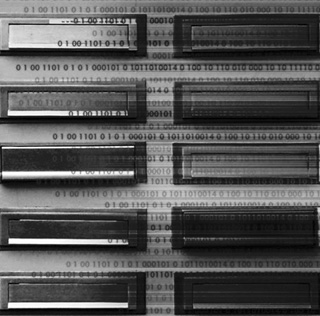
Postal Services and Modern Information and Communication Technologies
- Project team:
- Thematic area:
- Topic initiative:
Committee on Economics and Technology
- Analytical approach:
TA project
- Startdate:
2011
- Enddate:
2013
sprungmarken_marker_1988
Background and central aspects of the topic
According to Article 87 f GG (Basic Law for the Federal Republic of Germany), the Federation shall ensure the availability of adequate and appropriate postal and telecommunications services throughout the federal territory (universal service obligation). In this context, the TA project entitled »Postal services and modern information and communication technologies« investigates the question of which contributions are to be expected by modern information and communication technologies in order to provide the universal postal service and of possible risks with regard to the provision of the universal postal service which might arise due to an increased deployment of modern information and communication technologies.
Currently, the two main areas of the postal market are developing very differently. Whereas the CEP market (courier, express, parcel services) has grown dynamically over the past few years, the letters market has stagnated for years at a turnover of approximately 10 billion euros and even decreased to 9.2 billion euros in 2008 and 2009. The volume growth in the letters business still continued over the past years and reached a volume of 17.8 billion mails in 2008. But here as well, the letter volume decreased to a total of 17 billion mails in 2009.
This TA project shall focus on the letters sector. A wide range of contents can be transported by means of letters: bulk printed matters, invoices, court letters, personal letters or valuables (e.g. tickets, travel documents or bank cards). Almost 90 % of the letters market consists of business mail with a high share of advertising mail including personalized advertisement (direct mailing). In a very generalizing way, present forecasts assume that the letter volume will decrease by 30 to 60 % in the medium term. To evaluate a possible substitution of conventional letter communication by various types of information and communication technology (phone, fax, SMS, e-mail, social networks etc.), these different segments of the letters market have to be taken into consideration.
It is an undeniable fact that the sectors of postal services and telecommunications are central agents of social communication. The relation of the two sectors is characterized by close interdependence and competition. Moreover, there is no doubt that both postal services and telecommunications strive to benefit from the potential of digitalization at all levels of service provision.
Currently, both the service of Deutsche Telekom AG (in cooperation with providers of e-mail services) regarding a secured transmission of e-mails (»E-Mail«) and the hybrid letter of Deutsche Post AG are particularly remarkable. Beyond ensuring secured transmission the hybrid letter shall link the online world to the conventional postal world in a flexible way: Letters can be submitted online or on paper to the postal service which then will deliver them electronically or personally.
However, the use of information and communication systems in the postal sector comprises further areas: stamps generated via the World Wide Web or mobile phone, online track & trace systems for the transport of parcels and letters, extensive automation in the large mail sorting and mail distribution centers and much more.
Objectives and approach
The TA project includes a comprehensive assessment of the current and foreseeable use of information and communication technologies in the postal sector focusing on the letters market. The objective is particularly to investigate how information and communication technologies can contribute to the fulfilment of universal postal service obligations with regard to letter post on the one hand and to the substitution of conventional letter post on the other hand. For this, research shall focus on the following topics (among others):
- determination of typical requirements regarding electronic and postal communication demanded by the customers;
- identification of potentials for convergence of letter communication and electronic communication;
- description of existing and conceivable hybrid forms of electronic and postal communication (»online letter«) and their potentials – taking into account exemplary experiences from abroad, if applicable;
- assessment of substitution relations between electronic and postal communication types in the medium and longer term – differentiated according to the major segments of letter communication – and their consequences for postal service providers, for jobs and working conditions in postal companies as well as for commercial and private customers;
- analysis of the opportunities for small and medium-sized companies to participate in »modern« types of electronic or hybrid letter communication;
- assessment of the impact of using modern information and communication technologies on the delivery of letters with regard to ecological and particularly energetic consequences (»Green IT«);
- examination of new electronic or hybrid letter services with respect to data protection and privacy issues as well as to legal certainty;
- consideration of possible sociocultural consequences of an extensive substitution of conventional letter types by electronic ones.
Contact
Ulrich Riehm
riehm∂tab-beim-bundestag.de
+49 30 28491-0
Publications
Riehm, U.; Böhle, K.
2014. edition sigma
Riehm, U.; Böhle, K.
2014, February. Büro für Technikfolgen-Abschätzung beim Deutschen Bundestag (TAB)
Riehm, U.; Böhle, K.
2014, February. Büro für Technikfolgen-Abschätzung beim Deutschen Bundestag (TAB)
Riehm, U.; Böhle, K.
2013. Büro für Technikfolgen-Abschätzung beim Deutschen Bundestag (TAB). doi:10.5445/IR/310096097
In the Bundestag
- Vorgang - Bericht, Gutachten, Programm im Dokumentations- und Informationssystem für Parlamentsmaterialien (DIP)
